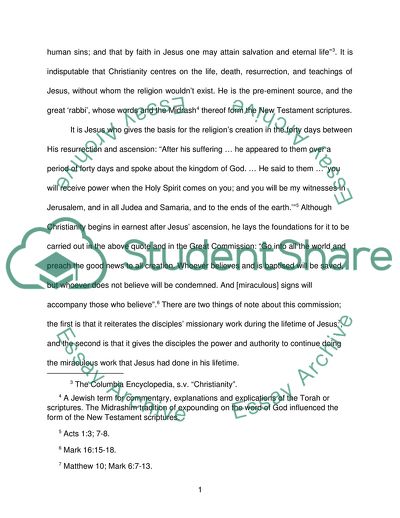Cite this document
(In What Ways can Jesus Be Considered the Founder of Christianity Literature review, n.d.)
In What Ways can Jesus Be Considered the Founder of Christianity Literature review. Retrieved from https://studentshare.org/religion-and-theology/1703865-in-what-ways-can-jesus-be-understood-as-the-founder-of-christianity
In What Ways can Jesus Be Considered the Founder of Christianity Literature review. Retrieved from https://studentshare.org/religion-and-theology/1703865-in-what-ways-can-jesus-be-understood-as-the-founder-of-christianity
(In What Ways Can Jesus Be Considered the Founder of Christianity Literature Review)
In What Ways Can Jesus Be Considered the Founder of Christianity Literature Review. https://studentshare.org/religion-and-theology/1703865-in-what-ways-can-jesus-be-understood-as-the-founder-of-christianity.
In What Ways Can Jesus Be Considered the Founder of Christianity Literature Review. https://studentshare.org/religion-and-theology/1703865-in-what-ways-can-jesus-be-understood-as-the-founder-of-christianity.
“In What Ways Can Jesus Be Considered the Founder of Christianity Literature Review”. https://studentshare.org/religion-and-theology/1703865-in-what-ways-can-jesus-be-understood-as-the-founder-of-christianity.


